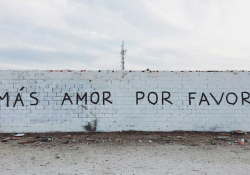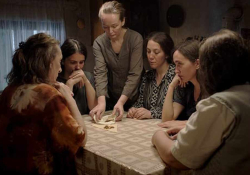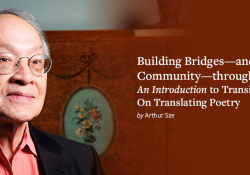For three days in November 2011, fifteen women writers gathered in Oaxaca City, Mexico, filling a colonial apartment next door to a church dedicated to the Virgin of Solitude. These woman are all—by choice or necessity—both writers and translators, navigating vast distances between cultures: indigenous and mestizo, Mexican and U.S., rural and urban, oral and literary. In honor of even the most community-minded writer’s need for solitude, the group named la Virgen de la Soledad their patron saint.
For eighteen months, Mexican-Zapotec poet Irma Pineda and I had planned this intimate gathering. A project of the Macondo Writers’ Workshop, the meeting was funded by the Transnational Remittance Program of the National Association for Latino Arts and Culture (NALAC).
“I had always intended for Macondo to become an international community of writers,” author Sandra Cisernos says of the organization that she founded thirteen years ago, at her kitchen table in San Antonio, Texas. And so Irma Pineda and I worked from our respective kitchen tables in Juchitán, Oaxaca, and Seattle, Washington, to bring that vision to fruition. Finally, on November 11, 2011, ten women who write poetry, plays, and stories in Spanish, Tojolabal, Tzotzil, Zapotec, and Zoque gathered for Macondo-in-Oaxaca, discussing how they became writers, how they publish and present their work, and how their creative work affects their lives and their communities.
The personal and professional trajectory of Zoque poet and fiction writer Mikeas Sanchéz is typical of the group. Her mother speaks Zoque exclusively, and Mikeas learned Spanish when she began school at age seven. “I am the seventh of ten children. Sure, I completed a master’s degree in Europe, but when I’m in my village, I’m making tortillas.” Mikeas, who is a single mother, works twelve-hour days at a trilingual (Spanish, Tzotzil, and Zoque) radio station. “I get up at two or three in the morning, to write until dawn breaks,” when the world—with all its responsibilities—wakes up around her. “I’ve had to give up a lot to write. My sleep, all the parties, even reading.” She published her first book of poetry Tumjama Maka Müjsi(And one day you will know) in 2006, at the age of twenty-six. She knows of only one other writer—and no other poet—working in her language, which is spoken by approximately sixty thousand people.
To join the Macondo gathering in Oaxaca City, Mikeas traveled for more than a day, going many hours out of her way to leave her five-year-old daughter in a friend’s care. When Sandra Cisneros asked Mikeas if her parents know she is an author, she paused, then said, “My mother’s world is our village. She doesn’t understand the concept of ‘author.’” Still, Mikeas reads her work aloud to her mother, relying upon her gifts as a storyteller and her deep knowledge of Zoque grammar and metaphor. Mikeas’s community, she says, “doesn’t read my work, but they do hear it.”
On the first morning of the gathering, Mikeas admitted that recently she’s been writing radio scripts, rather than poetry, because of work demands. She left Macondo-in-Oaxaca recommitted to making time for the solitude required for her poetry, because, as she says: “Poetry is synonymous with liberty.”
Seattle, Washington














